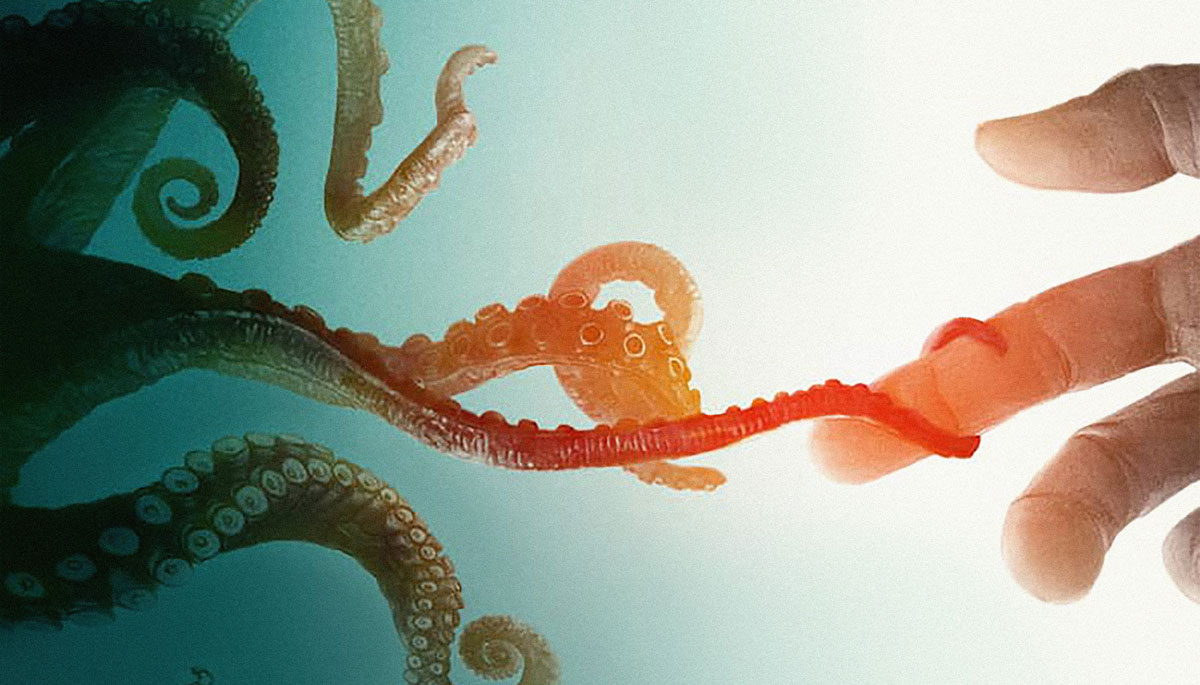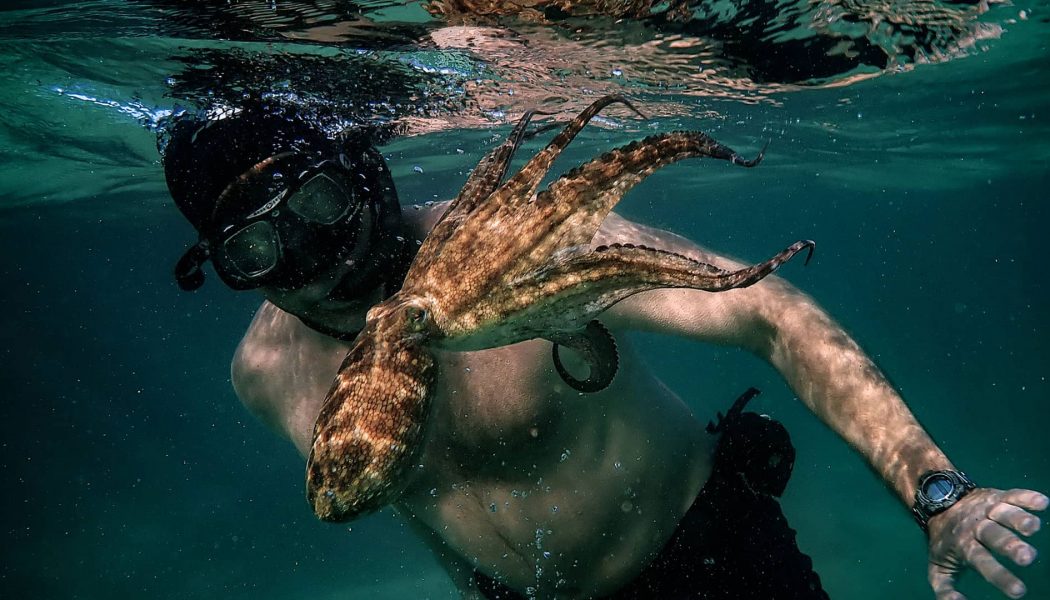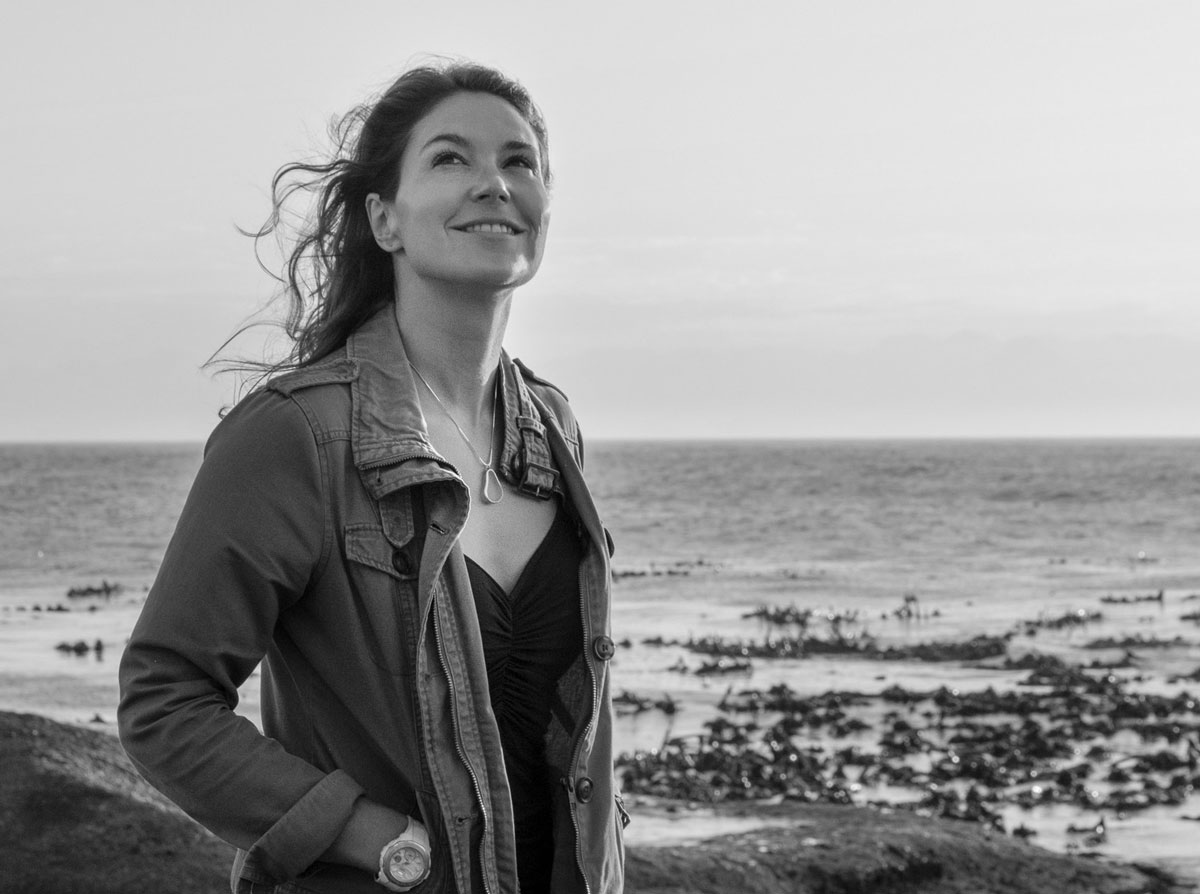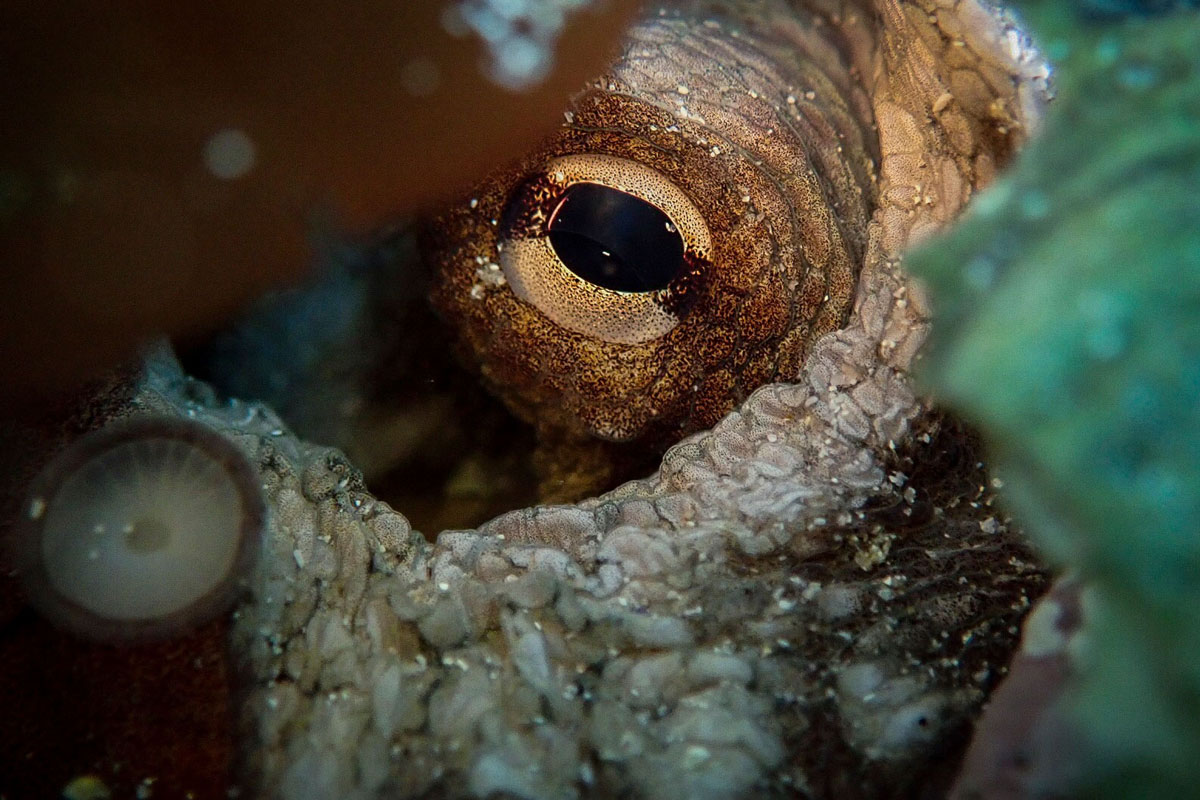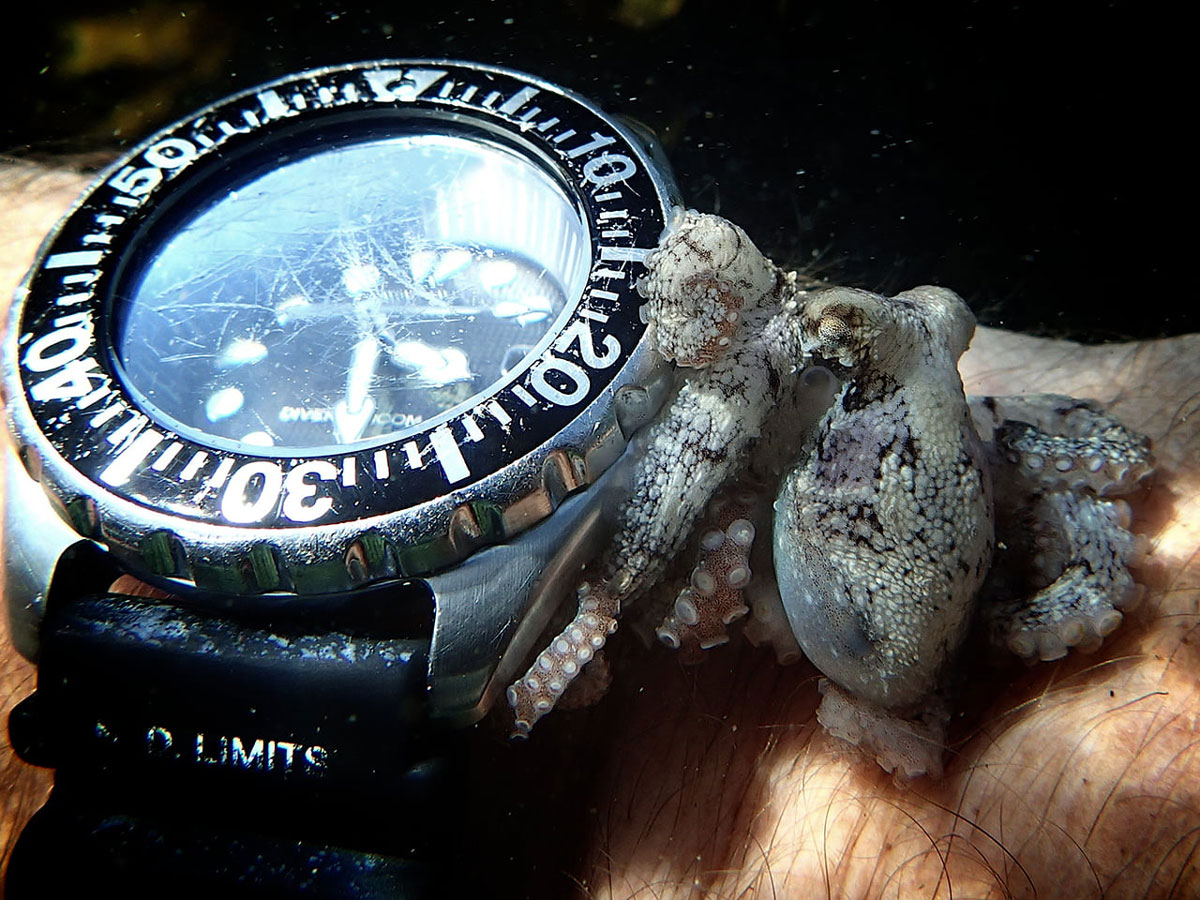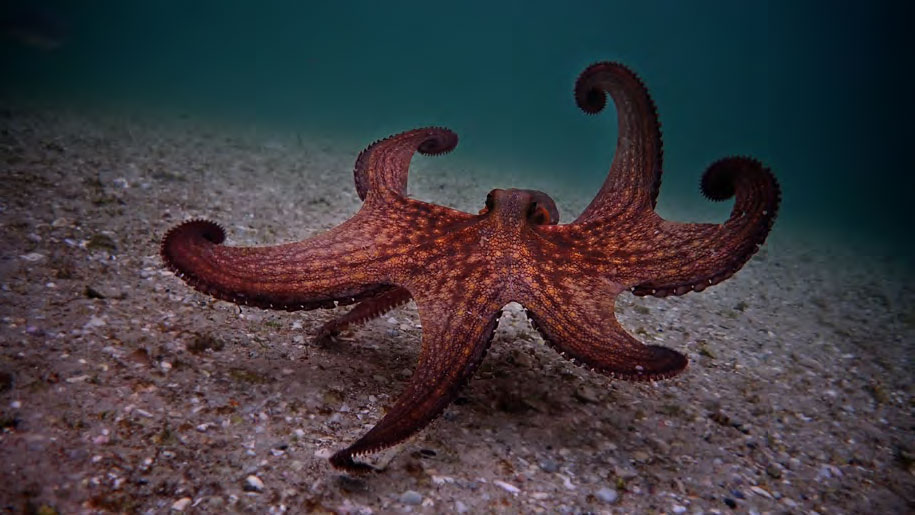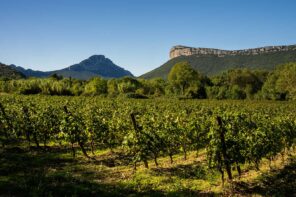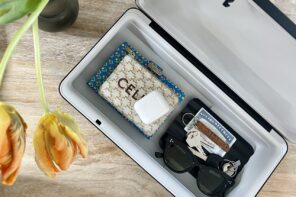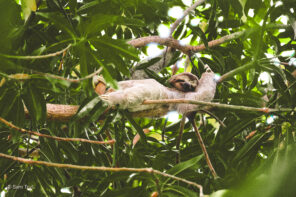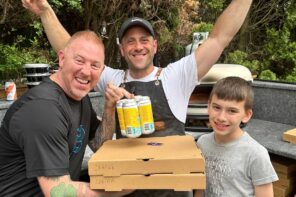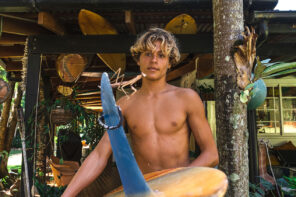An Interview with Pippa Ehrlich of My Octopus Teacher
My Octopus Teacher is not about a person dressed in a cephalopod costume singing the alphabet song. While that might be a clever way to gain the attention of a young Sally and Nick, it likely would not have the same appeal to the world as what happened to Craig Foster and Pippa Ehrlich in a South African kelp forest. For those reading this publication who have not yet seen the documentary My Octopus Teacher we would encourage you to take a swim over to Netflix when time allows. For those who have already seen the Academy Award winner for Best Documentary, we welcome you to an interview with Pippa Ehrlich for The Sea Creatures Issue of Whalebone. Pippa is the director, co-writer, and editor of the film. Maybe more important is her work with the Sea Change Project that is helping to shine a spotlight on the Great African Seaforest and the importance of biodiversity and the ways that the ecosystem greatly impacts what happens above the surface. Pippa was kind enough to sit down with Whalebone after a cold swim to share about her adventures with a man named Craig, an octopus, and a story that starts rather unassumingly.
Whalebone: What was your life like and what were you doing before the idea of filmmaking came knocking on your door?
Pippa Ehrlich: I was working for a marine conservation organization and I was speaking to very fascinating people all over the world. I was having these experiences where I was parachuting in and out of beautiful places and meeting nice people who were having very meaningful and mind-blowing experiences with nature and with food, the animals that they studied. And I started feeling quite voyeuristic in my own life—I was writing about these experiences and living them vicariously, but I started feeling I wanted to have my own relationship with the natural world. And that was when I started diving with Craig in South Africa and learning to track these different sea creatures, going with the steady practice of going into the cold water every day.
Whalebone: How did Craig and the idea of the octopus experience come about?
PE: So about six months into this process of diving every day, I was learning to track and adapt my body to the cold while getting to know Craig and Stephanie Darwin. And he said, “I think I’m going to make a film.” And I was like “Okay, cool.” He mentioned this was going to be a film about this amazing experience that he had with an octopus, but he never told me the full whole story. And when he did it just completely blew me away. A few days later he sent me a treatment—I remember being at my desk and finding time because it just resonated with me on a level that I couldn’t really explain. I think that it had something to do with the fact that I spent so much time writing about the negative impacts of human beings on the natural world. And this was a story about the impact of nature on a human being—that was very inspiring.
From then the whole process took many years to develop from an idea to a film. We started in March 2017 and we finally delivered the movie to Netflix in 2019. For the first two years, we had absolutely no funding. I gave up my job at Save Our Sea Foundation, and I was given a tiny stipend that the Sea Change Project managed to scrape together, which just kept me going, and everything was self-funded by Craig, but it was mostly an archive film. So by the time I got involved, the octopus had already died. Those first three months, all we did was go through and search to try and figure out what the most important story was. And we started off with something that was a bit of a mess. And then when we got into the story, things just started to flow and the story almost started telling itself.
Whalebone: You mention entering the cold water. Could you share about the importance of cold water in your life, and why cold water played such an important role in the film?
PE: I find it’s something that makes me feel really, really good. It’s almost addictive. It took about three months of forcing myself to stay in for 20 minutes at a time. It makes you feel so alive and calm and present. You go into the water and you’re just sort of lost through any kind of thought that might be going around in your mind. And a lot of science is being done now on what the impact of cold water is, but it definitely creates a very, very powerful cocktail of the mind. And it just makes me feel good and it’s very, very good for your immune system. It makes you feel calm and stimulates the mitochondria in your body. If you don’t know, mitochondria are super important to your cells—when you get hot or cold on a regular basis, you stimulate those mitochondria. So surrendering to that it pulls you deeper into the present. For the film, Craig and our team really embraced the power of the cold water and it kind of helped drive us and put us in the right headspace to tell this story.
It’s very hard to drum up support for an ecosystem that most people don’t even know exists.
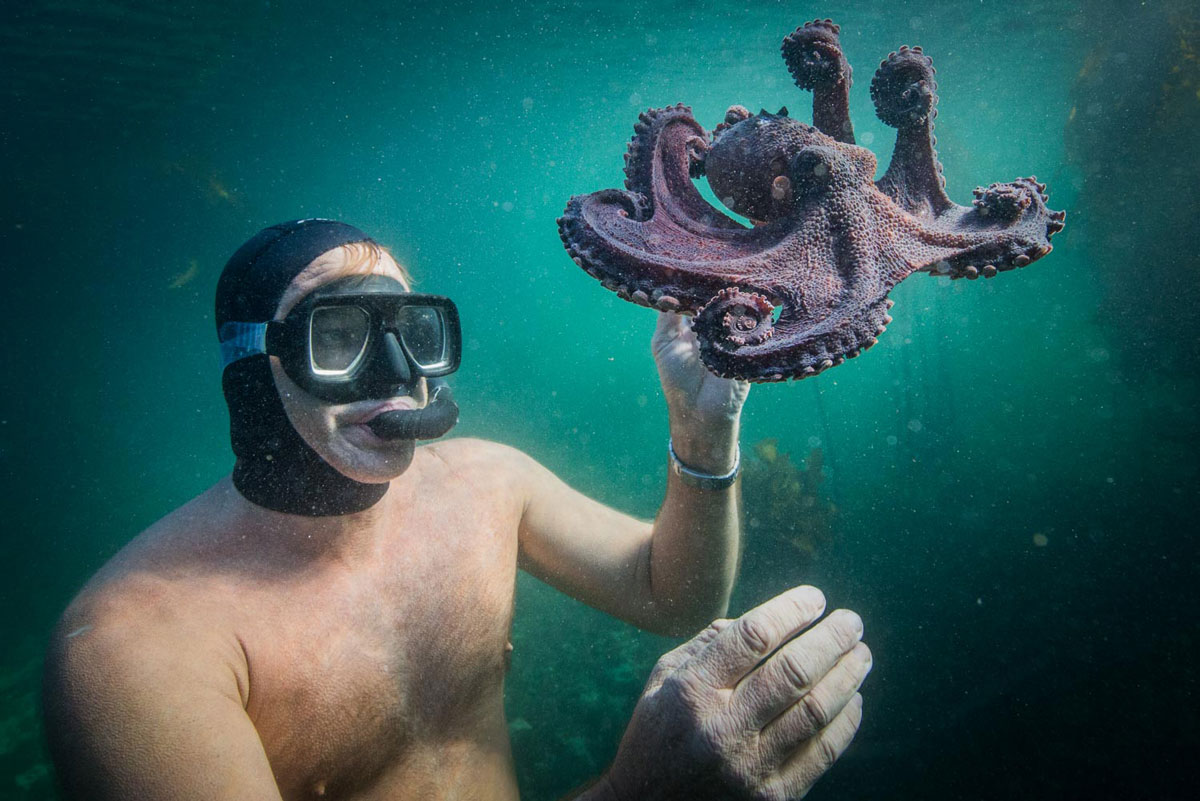
Whalebone: What is the importance of storytelling for something like the South African kelp forests?
PE: Storytelling is one of the things that makes us human; it’s how we’ve made sense of our world. Since the beginning, we haven’t known how animals communicate, we can’t speak their languages, but we know for sure that when human beings had a question that they couldn’t answer, they told a story that helped them to explain it. So that’s just how our minds work. I think it’s important to have facts and information about elements of the natural world, you know, such as a kelp forest. But you have to make a meaningful connection between the science and the story to touch people’s hearts and minds to really make them care about things. This is not an overt conservation for all of us, but because this is a very powerful story, showcasing an environment that most people have never seen before and will never have the chance to experience in person…I think it brings it to life in people’s imaginations, which is really what we’re trying to do as an organization at the Sea Change Project because it’s very hard to drum up support for an ecosystem that most people don’t even know exists.
We like to say that when someone visits the South African kelp forest, they’re coming home, and that’s because there’s evidence that’s been collected in caves and on the coastline that people have been living there at the shores of the cold forest for more than 120,000 years. This is where the very first evidence of [modern human] life was discovered. The very first evidence of science, the very first evidence of any kind of recording of information outside of our brains, the first arrowheads, the first time people decorated ostrich eggshells and made jewelry. So scientists refer to this place as the birthplace of the modern human mind and genetic studies have shown that almost every human being on Earth can trace their ancestry, their origins to South Africa’s coastline. So, yeah, it’s a very powerful story that each and every one of us is part of, not just because we have our relationship with nature, which everybody does, whether they’re conscious of it or not, but because we all share origins.
Whalebone: What do you feel our responsibility is to sea creatures these days? And has that changed over the last 100 years? And why?
PE: Unlike terrestrial animals, sea creatures have not evolved with us in their environment. So a vulnerable animal on land is likely to run away from human beings and something like a lion or a crocodile could be a threat to us, but underwater, most animals are likely to be very, very curious about what we are, because we’re not part of [what they recognize] as prey or as a threat. And that means that we need to be very, very careful how we interact with them, but I think it’s been a quite damaging time to have an attitude of nature belongs over there and we belong over here and we shouldn’t interact with wild animals ever—don’t think that it’s right to swim up to an animal or pull an octopus out of its nest, it’s not, but if an animal approaches you and is curious about you, and if you are respectful of it, you know, it’s a two-way experience and we can teach each other by looking into each other’s eyes.
If we’re talking about responsibility to sea creatures, and to the natural world, in general, I realize that we are not at the top of a giant pyramid, we are part of nature. And every single creature on Earth has a role to play and a life that they try to live, and a niche that’s been carved out over millions of years, and we need to find our own path in a non-destructive way, in a way that allows us to thrive along with the billions and millions of species that we share this planet with.
Whalebone: What can sea creatures teach us about ourselves?
PE: I suppose nature is this incredibly evolved and intelligent system but has no real balance. It’s a constant negotiation between everything that makes up the community of living things on Earth. Life, in general, on the planet is incredibly resilient when it only has one or two problems to deal with at a time. But when it’s being hit from all angles, by climate change, biodiversity loss, plastic pollution, chemical pollution, it becomes almost impossible for those systems to regenerate and remain healthy. But if there is one thing I believe that nature can teach us is to just be resilient.
Learn more about what Pippa, Craig and the My Octopus Teacher crew are up to these days by visiting seachangeproject.com or @seachangeproject.
